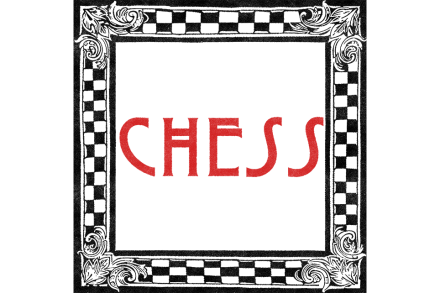No. 860
Black to play. So-Keymer, Freestyle Chess Grand Slam, Las Vegas 2025. Keymer’s next move forced So to resign. What did he play? Email answers to chess@spectator.co.uk by Monday 28 July. There is a prize of £20 for the first correct answer out of a hat. Please include a postal address and allow six weeks for prize delivery. Last week’s solution 1 Bf1! trapped the queen. Firouzja tried 1…Rb5 but 2 Qxb5 Qxe3+ 3 Rxe3 axb5 4 Bxb5 was easily winning for Gukesh. Last week’s winner Ray Fisher, Shepley, W. Yorks




















